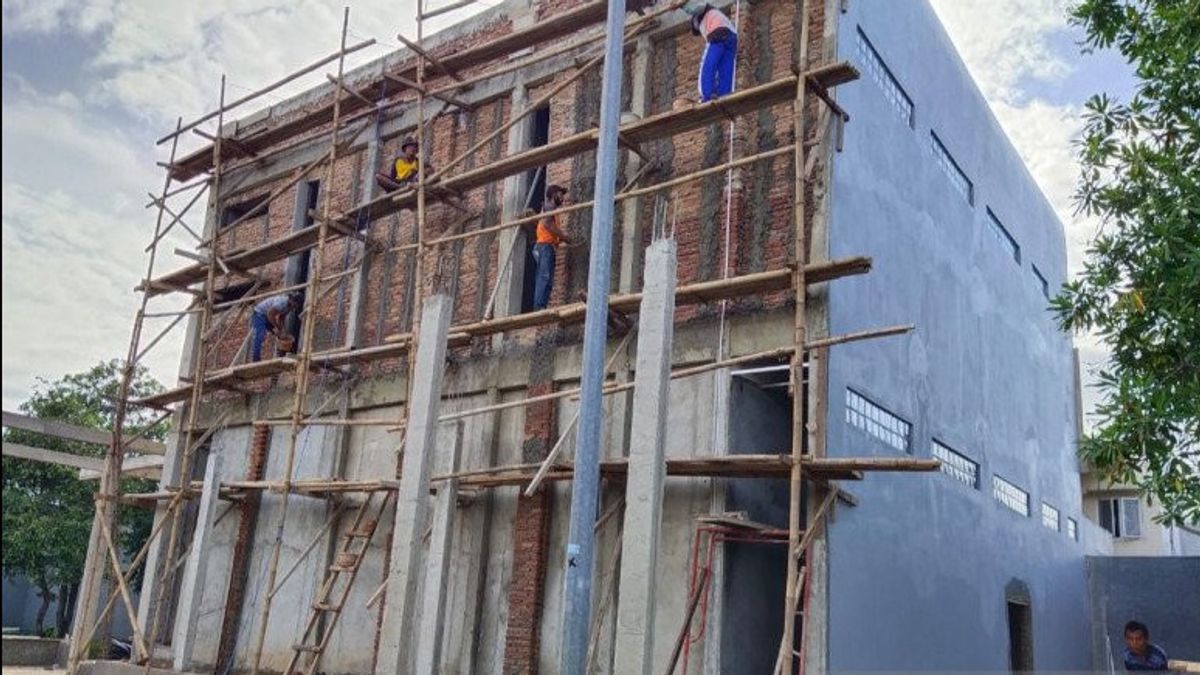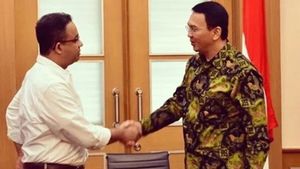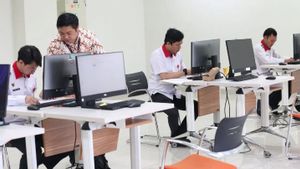JAKARTA - Residents of RW 10 Klaster Water Garden Grand Wisata, Lambang Jaya Village, Tambun Selatan District, Bekasi Regency, West Java have been sued by the developer. The residents were sued for building a place of worship in the form of a prayer room.
"The lawsuit, which was initially mediated, failed, so that it entered the trial stage at the Cikarang District Court," said local resident Rahman Kholid as the defendant in a written statement received, reported by Antara, Friday, February 26.
The residents were sued by PT Putra Alvita Pratama, which is a cluster developer belonging to the Sinarmas Group. The lawsuit has case number 326 / Pdt.G / 2020 / PN Ckr which contains the citizens being sued in a case of default.
Rahman explained that the lawsuit was related to the construction of the Musala Al Muhajirin which was built in the middle of the cluster with funds from the joint venture of the residents.
The mosque was erected on 226 square meters of land that residents purchased from the developer in 2015 for IDR 1.6 billion. After several years of installments, the land was finally paid off and a musala was started.
"We really need this place of worship considering that the closest mosque to the residents' houses is three kilometers away, so we took the initiative to build a prayer room with joint funds," he said. In the process, he said, the construction of the musala was actually questioned by the developer, because it was considered to have violated the rules on the grounds that according to the permit, the land was designated for housing.
"He said the permit was for a residence. Whereas in the sale and purchase agreement with the developer, the use of the land was authorized by the owner, so that it was used responsibly. But it turned out to be questioned until he was sued because he was deemed default," he also said.
Rahman admitted that actually residents do not immediately build a prayer room, but they first take permits, starting from residents' approval to processing permits with the Bekasi Regency Government.
"Based on the regulations, the permit is actually a matter of waiting for a recommendation from the PUPR Service, all the requirements have been met, but the PUPR party said he asked for approval from the developer. Whereas in the regulation it does not have to be. This is also our question," he said again.
Rahman emphasized that all residents participated in the lawsuit process, even the residents were ready to fulfill the requirements put forward by the developer as the plaintiff, but no consensus was reached in the mediation process.
On the other hand, the requirements put forward by the developer also deviate from the substance of the lawsuit regarding default. The developer is considered to have even intervened in the prayer room activities.
According to him, under the conditions proposed, the plaintiff prohibited the prayer room set up by the residents from holding Friday prayers. Musalas are also not allowed to say the call to prayer with loudspeakers and are prohibited from holding recitation.
"This has entered into the realm of obstructing worship and intervening in our faith as a Muslim. This is a serious violation. On the other hand, the accusations of default which have been being held up are not touched at all in the mediation process," he also said.
The residents considered that the lawsuit did not fulfill the elements. In addition to the plaintiff not focusing on the material of the lawsuit, the plaintiff never presented the principal. In fact, according to Supreme Court regulations, if the principal is not present during the mediation, the lawsuit process cannot be continued.
"This is every mediation, three to four times, the principal of the plaintiff has never been present. Instead, he represented his employees, which means that actually the lawsuit process cannot be continued. Then the matter of permission was actually already done, so it was not suddenly without permission. percent of cluster residents have also agreed to this prayer room permit, including non-Muslim residents who also approved it, but why are the developers questioning it, "he said again.
Meanwhile, the plaintiff's attorney from PT Putra Alvita Pratama was reluctant to provide information when met by the media crew after the trial with an agenda for reading the lawsuit.
The English, Chinese, Japanese, Arabic, and French versions are automatically generated by the AI. So there may still be inaccuracies in translating, please always see Indonesian as our main language. (system supported by DigitalSiber.id)













